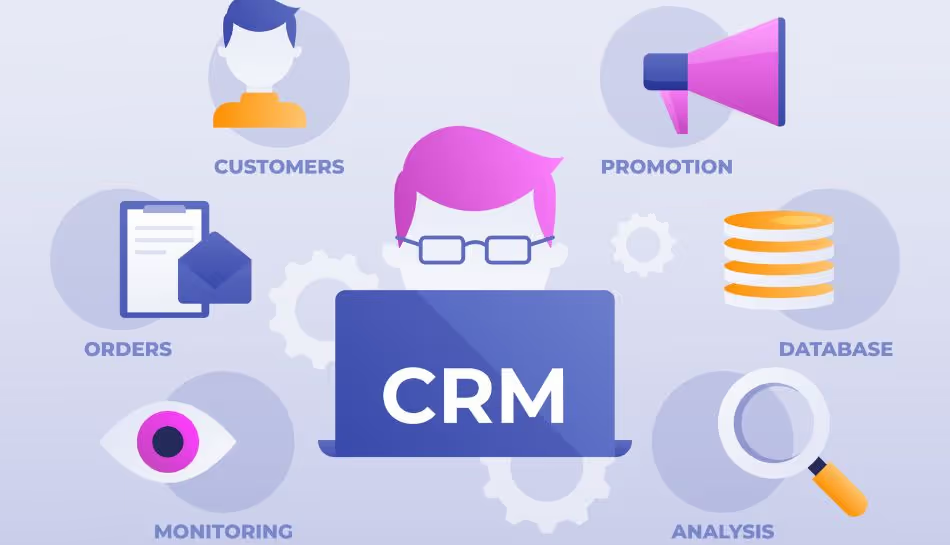
For any business to grow steadily, sales and marketing must work hand in hand. Sales turn that attention into money, while marketing creates awareness and interest. But often, these two teams operate in silos, leading to miscommunication, missed opportunities, and inefficiency. This is where CRM in sales and marketing plays a crucial role.
What is CRM in Sales?
CRM in sales refers to using sales CRM software to manage customer relationships, track leads, and monitor the entire sales pipeline. Marketing focuses on generating leads and awareness, whereas sales focuses on conversions and revenue. Instead of juggling multiple spreadsheets or losing track of leads, the sales team has a structured system to boost productivity and close deals faster.
For example, if a potential customer shows interest through a marketing campaign, CRM ensures that sales knows exactly who they are, what they want, and where they are in the buying journey.
Bridging the Gap Between Sales and Marketing
Sales and marketing teams often have overlapping goals but different approaches. Sales concentrates on conversions and income, whereas marketing concentrates on creating awareness and leads. CRM in sales and marketing ensures these two functions complement each other instead of working in isolation.
Here’s how CRM helps in alignment:
- Centralized Data: Marketing campaigns generate a lot of data. CRM makes this information available to sales, ensuring they don’t waste time chasing unqualified leads.
- Lead Scoring and Nurturing: Marketing can use CRM to qualify leads and pass on only the most promising ones to sales.
- Closed-Loop Reporting: CRM tracks how many leads from marketing actually convert, allowing both teams to refine their strategies.
- Personalized Customer Journeys: By sharing data through CRM, sales and marketing can deliver consistent and relevant messages to customers.
Why Businesses Need Sales CRM Software
Sales is more concerned with conversions and income than marketing, which is more concerned with creating awareness and leads. Some key reasons include:
- Improved Communication – CRM ensures sales has the right context from marketing before approaching leads.
- Enhanced Customer Experience – Prospects receive consistent messaging, whether interacting with marketing or sales.
- Accurate Forecasting – Sales teams can use CRM to predict outcomes and align with marketing’s future campaigns.
- Increased Productivity – Automated tasks free up sales reps to focus more on selling rather than administrative work.
- Data-Driven Decisions – Both sales and marketing can track performance metrics to fine-tune strategies.
Choosing the Best Sales CRM
When businesses look for the best sales CRM, they should focus on solutions that integrate seamlessly with marketing tools. Features like lead tracking, analytics, email campaign integration, and pipeline management are crucial for success.
The best sales CRM should not only help sales teams track deals but also give marketing a clear picture of which campaigns bring in quality leads. This transparency ensures resources are spent wisely and efforts are aligned with business goals.
CRM as a Strategic Growth Tool
The function of CRM goes beyond software, it acts as a strategy. Businesses can develop a cohesive strategy for engaging customers by dismantling the divisions between marketing and sales. Stronger customer loyalty, increased conversion rates, and shorter sales cycles are the results of this.
In today’s competitive environment, customers expect personalized and consistent experiences. Without CRM in sales and marketing, businesses risk sending mixed signals, losing leads, and missing revenue opportunities.
Final Thoughts
CRM in sales and marketing is no longer just about managing contacts or automating tasks. It’s about creating synergy between two of the most important functions of a business. With the right sales CRM software, companies can achieve better collaboration, improve customer experience, and drive sustainable growth.
If you are looking for the best sales CRM, choose one that empowers both your sales and marketing teams, integrates data seamlessly, and helps your business stay ahead in a competitive marketplace.

